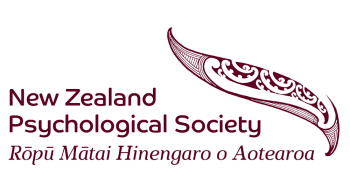
Coaching Psychology Special Interest Group (CPSIG)
The Coaching Psychology Special Interest Group (CPSIG), a special interest group under the auspice of NZ Psychological Society, was established at the end of 2009. CPSIG aims to further the awareness, discipline and profession of coaching psychology in Aotearoa/New Zealand and beyond. The primary purpose of the Coaching Psychology Special Interest Group is to contribute to the Continuing Competency Programme for psychologists who are interested in coaching through:
– Discussing and developing current practice
– Sharing information about professional development opportunities
– Providing psychologically focused training opportunities
– Promoting best coaching and coaching supervision practice
– Informing the profession and the public about what coaching psychology is
– Connecting with other professionals and coaching psychologists here and overseas
What is coaching psychology?
Coaching Psychology is a science-based approach combining the established principles of professional psychological practice with more recent findings regarding the efficacy of the positive psychology focus in promoting wellbeing, personal values and individual achievement. The fundamental objectives of coaching are to enable and enhance a client’s capability to reach desired personal and professional goals, often within a complex environment with multiple influences and challenges. Applying the knowledge-base of psychology with scientific rigour within the framework of the profession’s Code of Ethics provides a robust foundation for assisting coaching clients to achieve their goals.
Coach or coaching psychologist?
Most professional coaching draws heavily on psychological knowledge which can be acquired through a combination of relevant experience and study: from personal study and short courses to a variety of university-level qualifications. Some Coaches also have experience and/or qualifications in some other field, to which they have added some training in Coaching. Key aspects of best practice in coaching include: behaving legally and ethically, including confidentiality; maintaining an appropriate coach-client relationship, acting in the best interests of the client, record-keeping, and maintaining professional skills and knowledge in accordance with the coach’s professional memberships and obligations. These are not exclusive to psychological practice.
A Coaching Psychologist however is qualified to at least Masters level in Psychology, and has completed a minimum of 1500 hours of supervised practice. With this more comprehensive psychology preparation, a Coaching Psychologist can be expected to have a more comprehensive understanding of both what drives human behaviour and how to effect change. In addition, a Coaching Psychologist practices:
- under the Health Practitioners Competency Assurance Act (2003), the key purpose of which is protection of the public,
- in accordance with the standards of the profession’s Code of Ethics
- with competence in managing dual client obligations (for example, the Coach’s obligations to both an employee receiving coaching services and the employer) and the sorts of multiple-relationship issues that often occur in the context of New Zealand’s small population
- with heightened knowledge and skills when dealing with unusual or complex combinations of personal sensitivity, vulnerability and health.
In what way is a psychologist’s coaching practice monitored and evaluated?
As with all confidential engagements external scrutiny is difficult – doing so would void the privacy of those involved. However, all Psychologists who Coach are required to undertake regular external professional supervision to ensure effective and safe practice, alongside ongoing professional development. Many will belong to professional bodies that provide training opportunities, collegial dialogue on coaching-related issues and case study discussion/learning. The membership of such bodies requires that specific ethical and practice standards are met. Registered Psychologists also have to meet the requirements of their Continuing Competence Programme including annual review of their professional development activities and learning plan and are subject to random external audit by the New Zealand Psychologists Board.
Confidentiality is a vital part of professional psychological practice and is reinforced by the code of ethics that all registered psychological practitioners are obligated to follow. Issues regarding confidentiality, the limits of it and items of disclosure, will be discussed between the coach and coachee (client) and with the consent of the coachee at the time or due to prior discussion and agreement. In situations where a case is discussed with a supervisor during supervision, identifying features of the case are removed in the conversation.
Read more about The Coaching Relationship in this linked article.
What do we offer our members?
- Monthly newsletters
- Online discussion group (CPnet) – CPSIG offers a Google Groups online discussion group for coaches and individuals interested in coaching psychology in New Zealand and around the world. To contribute to the discussion group, send emails to . To join the virtual discussion group (CPnet), please contact Jonathan Black, email .
- Professional support – the group offers an opportunity to develop relationships with other individuals interested in and practicing coaching, with a particular focus on coaching psychology.
- Events – CPSIG is organising an increasing number of seminars throughout the country. Details of events are posted regularly on CPnet.
- Various conferences are organised internationally with details posted on CPnet.
Membership criteria
Anyone can join the CPnet or come to our seminars. However, to be a CPSIG Member you also need to be a Member of the NZPsS.
Signing up for the NZPsS CPSIG
To become a member of CPSIG please complete the online CPSIG application form – the annual subscription is $20 or complete the CPSIG application Word doc and email to the membership administrator .
To join the online discussion group (CPnet), contact Jonathan Black, email
The Steering Group Committee
|
Secretary / Treasurer |
Benita Stiles-Smith |
|
Newsletter |
Iain McCormick |
|
Events / Coaching Cafe |
Jonathan Black/David Bennett |
|
Social Media |
Debby Prideaux / Stewart Forsyth |
|
Membership |
Jonathan Black |
|
Research and Development |
Iain McCormick /Barbara Kennedy |
International coaching psychology
A website that shows the development of coaching psychology and with links to various coaching psychology societies and organisations, see
http://www.scpitaly.it/chi-siamo/coaching-psychology-nel-mondo.html
